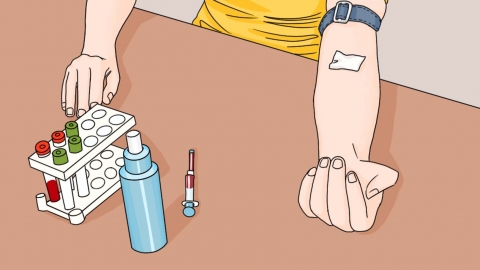What are the common causes of low renin levels?
Generally, low renin levels may be commonly caused by factors such as body position, aging, primary aldosteronism, Cushing's syndrome, and renal insufficiency. It is recommended to seek timely medical consultation to identify the underlying cause and receive symptomatic treatment under a physician's guidance. Detailed explanations are as follows:

1. Body Position: Prolonged lying down maintains relatively stable renal blood flow, decreasing renin secretion and thus lowering renin levels. When changing to a standing position, renin secretion increases. This is a normal physiological regulation without other discomfort and requires no special treatment. During renin level testing, follow the required body position to ensure accurate results and avoid interference from improper positioning.
2. Aging: With advancing age, kidney function gradually declines, and the juxtaglomerular apparatus' ability to secrete renin diminishes, causing a physiological decrease in renin levels. This is usually asymptomatic with other kidney function indicators remaining normal. Maintain a regular routine, avoid excessive fatigue, follow a light, low-salt diet to protect kidney function, and regularly monitor blood pressure and kidney function. No specific treatment for low renin levels is needed.
3. Primary Aldosteronism: Excessive aldosterone secretion by the adrenal cortex suppresses renin secretion through feedback mechanisms, leading to low renin levels accompanied by hypertension and hypokalemia, manifesting as fatigue, muscle weakness, and polyuria. Patients should limit sodium intake and follow medical advice to use medications such as spironolactone tablets, eplerenone tablets, or triamterene tablets to antagonize aldosterone effects, lower blood pressure, and correct hypokalemia. Patients with adrenal adenomas require laparoscopic adrenalectomy to remove the tumor. After surgery, aldosterone levels decrease and renin levels gradually recover.
4. Cushing's Syndrome: Excessive glucocorticoid secretion inhibits the renin-angiotensin system, leading to reduced renin levels, accompanied by central obesity, moon face, hypertension, and possibly elevated blood glucose. Patients should control their diet, reduce intake of high-sugar and high-fat foods, and follow medical advice to use medications such as bromocriptine mesylate tablets, ketoconazole tablets, or mitotane tablets to inhibit hormone synthesis. Patients with pituitary tumors require endoscopic pituitary tumor resection to reduce hormone secretion and improve renin levels.
5. Renal Insufficiency: Chronic kidney disease damages the juxtaglomerular apparatus, reducing renin secretion and causing low renin levels, accompanied by elevated creatinine, reduced urine output, and edema. The more severe the kidney dysfunction, the more pronounced the decrease in renin. Patients should follow a low-salt, low-protein diet, avoid nephrotoxic drugs, and take medications such as uremic clearance granules, kidney failure soothing capsules, or baguling capsules as directed to protect kidney function and slow disease progression. Severe cases may require hemodialysis or kidney transplantation to replace impaired kidney function and maintain metabolic balance.
Routinely monitor blood pressure and kidney function, especially in patients with hypertension who should be screened for renin-aldosterone abnormalities. Engage in moderate exercise, control body weight, and avoid obesity-induced hormonal imbalances. Reduce intake of high-salt foods in your diet to减轻 kidney burden, protect normal kidney secretory function, and reduce the risk of renin abnormalities.





